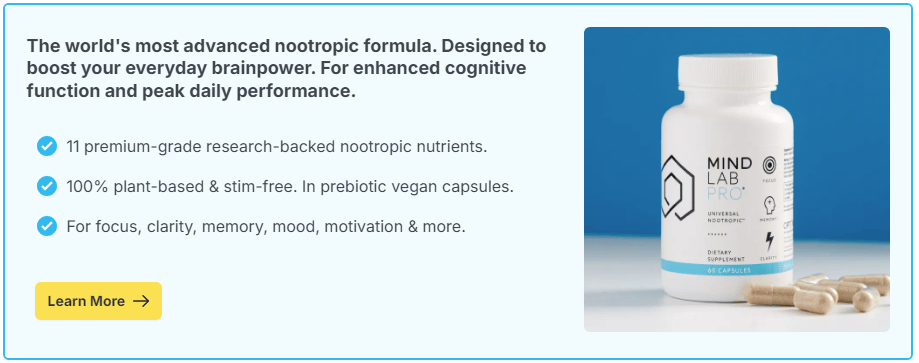- Enhancing Brain
- Posts
- Your morning coffee really does make you happier (2025 Study)
Your morning coffee really does make you happier (2025 Study)
That first sip of coffee is more than just habit…
Your morning coffee really does make you happier, boosting mood, energy, and even protecting mental health when enjoyed in moderation.
The Study That Proves It

Researchers from the University of Warwick and Bielefeld University tracked over 200 young adults for four weeks. Participants logged their caffeine use and mood seven times a day, producing more than 28,000 reports.
The results: within the first 2.5 hours after waking, those who drank coffee or tea consistently reported higher happiness, enthusiasm, and positive emotions compared to later in the day.
This study, published in Nature Scientific Reports (2025), is one of the strongest real-world proofs that your morning coffee really does make you happier.
How Coffee Boosts Your Brain Chemistry

Coffee’s happiness effect isn’t magic, it’s chemistry.
Caffeine blocks adenosine receptors, the brain’s “tiredness” signal. This lifts the brake on key neurotransmitters:
🔸 Dopamine → boosts motivation and mood
🔸 Serotonin → stabilizes emotions and well-being
🔸 Glutamate → sharpens learning and memory
Together, these changes make you feel more alert, energetic, and yes, happier.
The Warwick researchers noted that even moderate caffeine drinkers felt this lift, showing it’s not just heavy users avoiding withdrawal but a real brain-boosting effect.
Morning Matters Most

The timing of your coffee makes a big difference.
The Warwick study found that caffeine’s happiness boost peaks only in the first 2.5 hours after waking.
Drink it later in the day and the effect is weaker, and you risk messing with your sleep.
That early cup doesn’t just wake you up; it triggers the strongest rise in enthusiasm and positive emotions.
Wait until afternoon, and you’re mostly chasing alertness, not happiness.
This explains why that morning coffee feels so good: your brain is primed to respond to caffeine right after sleep.
Long-term Benefits

Beyond a short-term mood lift, coffee has long-term mental health benefits.
Large studies show:
🔹 Lower depression risk: A Harvard study of 50,000+ women found 2-3 cups a day cut depression risk by 15%, and 4+ cups cut it by 20%.
🔹 Suicide protection: Analysis of 200,000+ people showed those drinking 2-3 cups daily had a 45% lower suicide risk, and 4+ cups lowered it by 53%.
🔹 Dose-dependent effect: Each extra 2 cups per day was linked to 25% lower suicide risk.
These findings point to caffeine, not just other compounds in coffee, as the protective factor, since decaf doesn’t show the same benefits.
In other words, moderate daily coffee doesn’t just make mornings brighter, it may also protect long-term mental health.
The Sweet Spot: How Much Is Too Much?

Moderation is where coffee shines.
Research shows the optimal range is 2-4 cups per day (about 200-400mg of caffeine).
This amount brings the strongest mood and mental health benefits without major downsides.
Go above 400mg, and the risks climb:
🔸 Higher anxiety
🔸 Jitteriness and rapid heartbeat
🔸 Trouble falling asleep if consumed late
Timing matters too. Coffee in the morning gives the best happiness boost. Afternoon or evening cups may disrupt sleep, which cancels out the mental benefits.
Bottom line: enjoy your morning coffee guilt-free. Stick to a few cups, and keep it earlier in the day.
FAQ
1. Does morning coffee really make you happier?
Yes. Studies show caffeine boosts positive emotions, especially within the first 2.5 hours after waking.
2. How does coffee improve mood?
Caffeine blocks adenosine receptors, increasing dopamine, serotonin, and glutamate, neurotransmitters linked to motivation, happiness, and alertness.
3. How many cups of coffee a day are best for happiness?
Research suggests 2–4 cups daily (200–400mg caffeine) provide the strongest benefits without major risks.
4. Does coffee help with depression?
Yes. Large studies link moderate coffee intake to a lower risk of depression and even reduced suicide risk.
5. Is the happiness effect just caffeine withdrawal relief?
No. Studies show even moderate drinkers who don’t experience strong withdrawal still feel the mood boost.
6. Does decaf coffee improve mood?
Not significantly. The mood effects come mainly from caffeine, not other compounds in coffee.
7. Can too much coffee make you anxious?
Yes. High doses (400mg+) are linked to increased anxiety, jitters, and sleep problems.
8. Is tea as effective as coffee for happiness?
Yes, tea also contains caffeine and provides a similar (though often milder) mood boost.
9. When is the best time to drink coffee?
Morning, especially in the first 2.5 hours after waking, for the strongest mood benefits.
10. Can I drink coffee every day safely?
For most healthy adults, yes. Just stay under 400mg of caffeine per day and avoid late-night cups.

